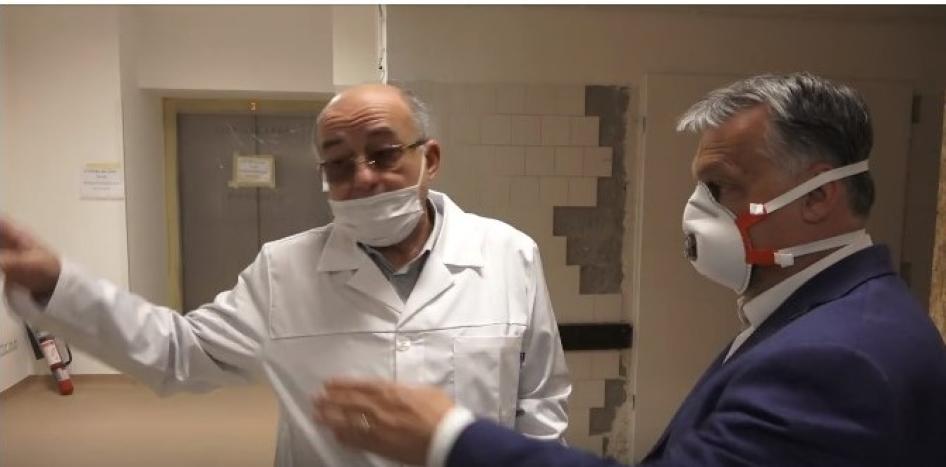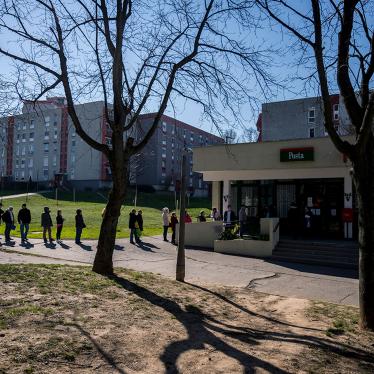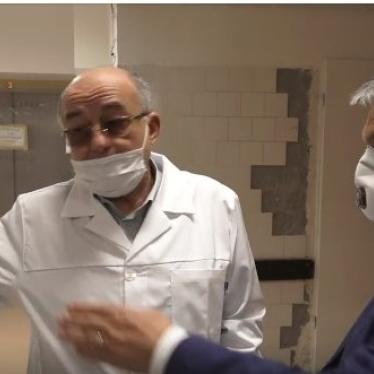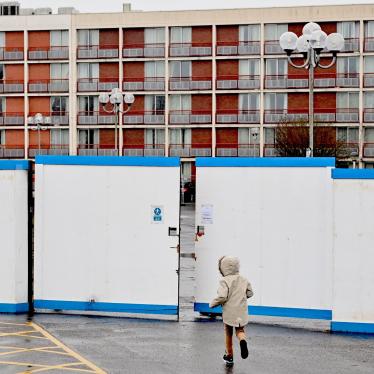It’s every parent’s nightmare: a trip to the playground turns into a serious injury for your child, and rather than enjoying a fun day out, you’re in an ambulance racing to the hospital.
For my friend Anna, it was a double nightmare, because the paramedics were taking them to a public hospital in Hungary.
Anna and her child arrived at a Budapest hospital and were admitted to the children’s ward. There was a temperature check and cursory questionnaire given to people upon admission, with questions such as “Have you been abroad?”. No one was given masks to wear, but Anna had brought her own.
Afterward, Anna and her child were placed in a room about 25 to 30 meters square (322 square feet), with 6 other young patients and 6 parents crammed into it. There was hardly room enough for the 14 of them, let alone staff.
In late May, with the coronavirus pandemic in full swing, this overcrowding was already incredibly stressful, but for Anna it was worse as her diabetes makes her more vulnerable to infection. When she entered the hospital, no one had asked about underlying health conditions that might have put her or her child at higher risk of severe illness.
When Anna asked about precautions to prevent the spread of Covid-19, staff – mostly unmasked – told her that everyone in the room had been tested for the virus. But Anna and her child had not been tested, and it only took her a few minutes of asking the – also mostly unmasked – parents to discover that no one had been tested. No patients. No parents.
The hospital was clearly not following the government’s social distancing guidelines, but at the same time, it was obeying other edicts. Five or six other rooms on the same floor stood empty. When Anna inquired why, she was informed that they were for potential Covid patients. Indeed, on April 7, the government had issued a directive saying 60 percent of hospital beds must be emptied to prepare for a possible surge of Covid-19 patients. The order forced hospitals to empty the beds within 12 days. Hospitals across Hungary were following these orders until early June – and, according to media reports, in some cases even by abruptly expelling terminally and seriously ill patients without follow-up support, just to meet the government’s target. Anna asked why the children couldn’t be spread out into the many empty rooms, instead of all crowded into one small ward, particularly those with pre-existing medical conditions who could have a higher risk of severe illness from Covid-19.
“I can’t do that,” the doctor told her. “These are my orders.”
Anna’s harrowing experience highlights longstanding problems with hygiene in the Hungarian healthcare system.
A recent Human Rights Watch report talks about how poor hospital conditions and a lack of basic materials and protocols, like soap and hand sanitizers, contribute to completely preventable hospital infections, leaving many sicker than when they arrived. Or dead.
Waiting for a critical operation for a two-and-a-half-year-old under those conditions was a long six hours for both of them. At least Anna had managed to get toilet paper and soap to bring with her.
Public hospitals in Hungary, more often than not, do not provide toilet paper or soap, so patients and visitors have to provide their own. This is no secret; some hospitals – like this one, this one, and this one – even put this as information on their website to prepare patients for what to expect.
At least there was running water in the toilet this time. No hot water in the sink, but if you have your own soap, or if another visitor is willing to lend you theirs, you can make do with the cold tap.
The soap and toilet paper are just part of the bring-it-yourself list. Anna says no cutlery was provided for the food, and no glasses were made available for the communal tea pitcher. Patients are even required to have their prescriptions filled at pharmacies outside the hospital. But it was the lack of basic hygiene supplies in the middle of a global pandemic that caused the most concern.
“How can a sink in a hospital WC [bathroom] not have hand soap?” Anna asks.
The most remarkable thing about Anna’s story, however, is that nothing in it would surprise anyone in Hungary. The popular reputation of the country’s hospitals is awful. Internationally, some jaws might be dropping as people read this, but in Hungary, people know, even in a pandemic, that they shouldn’t anticipate even passable standards of hygiene or health care.
“Why is it like this?” I’ve asked Anna on numerous occasions. More than three decades since the end of the old regime, it cannot be dismissed as a legacy of communism.
For their part, the government puts an incredible spin on health care. Prime Minister Viktor Orbán said recently that the Hungarian healthcare system performed “among the best in Europe” during the pandemic. But Hungarian hospitals today, Anna says, are not even close to the standard of western European Union hospitals from 30 years ago, let alone in 2020, and she’s in a position to know.
As a child in the late 1980s, Anna was in hospital in another European Union country, and she remembers receiving quality care in a clean, cheerful children’s ward. And she especially remembers the free hand soap and toilet paper.
Given her experiences, Anna’s understandably angry that the Hungarian government says it defends the Hungarian people, while hospitals lack even the basics.
“It’s pretty messed up that there is money for new football stadiums while hospitals rot away.”
Everyone has a right to highest attainable standards of health care. The government of Hungary – not a developing nation by any means – is failing its people. Everyone in Hungary knows it. I suspect even many supporters of the ruling party would admit it. And the awful situation may not improve until they do so publicly.




